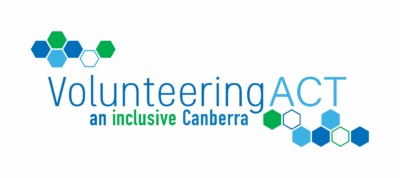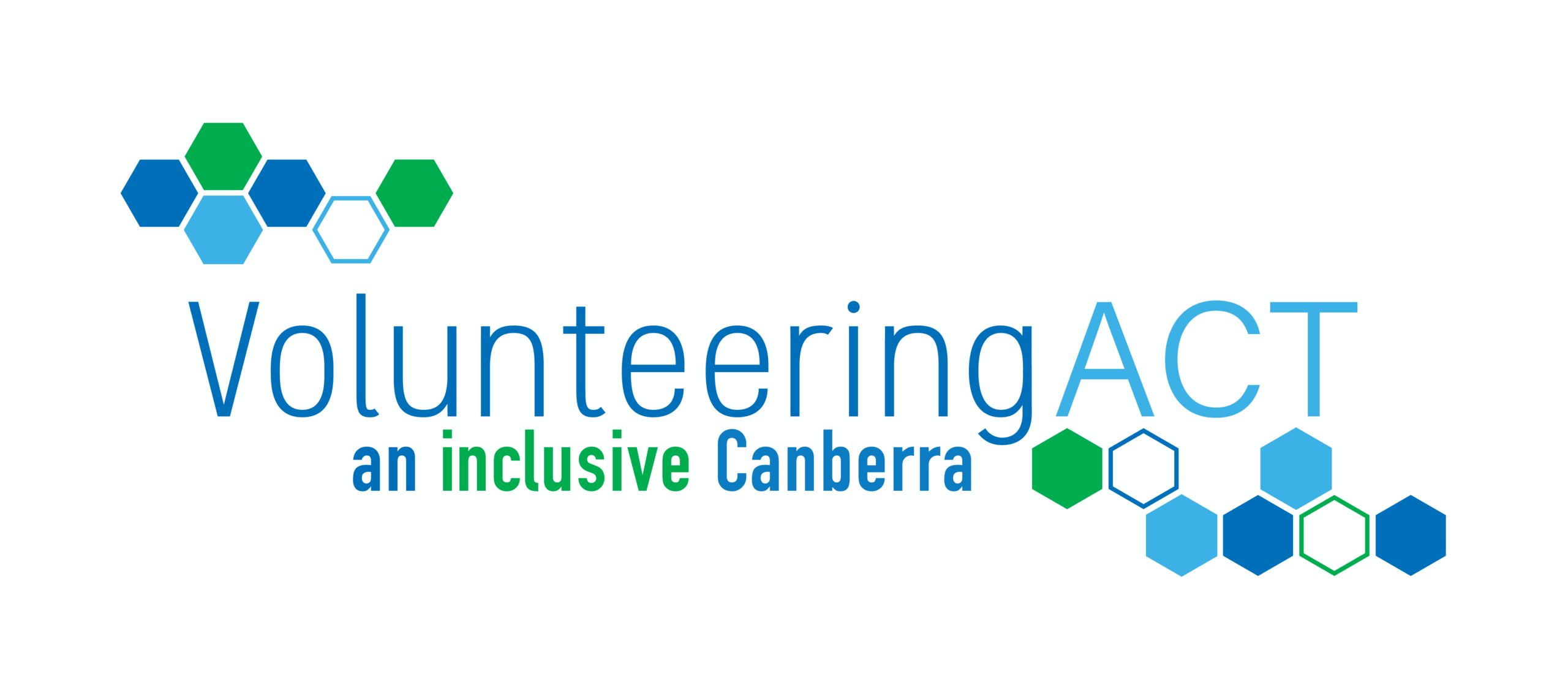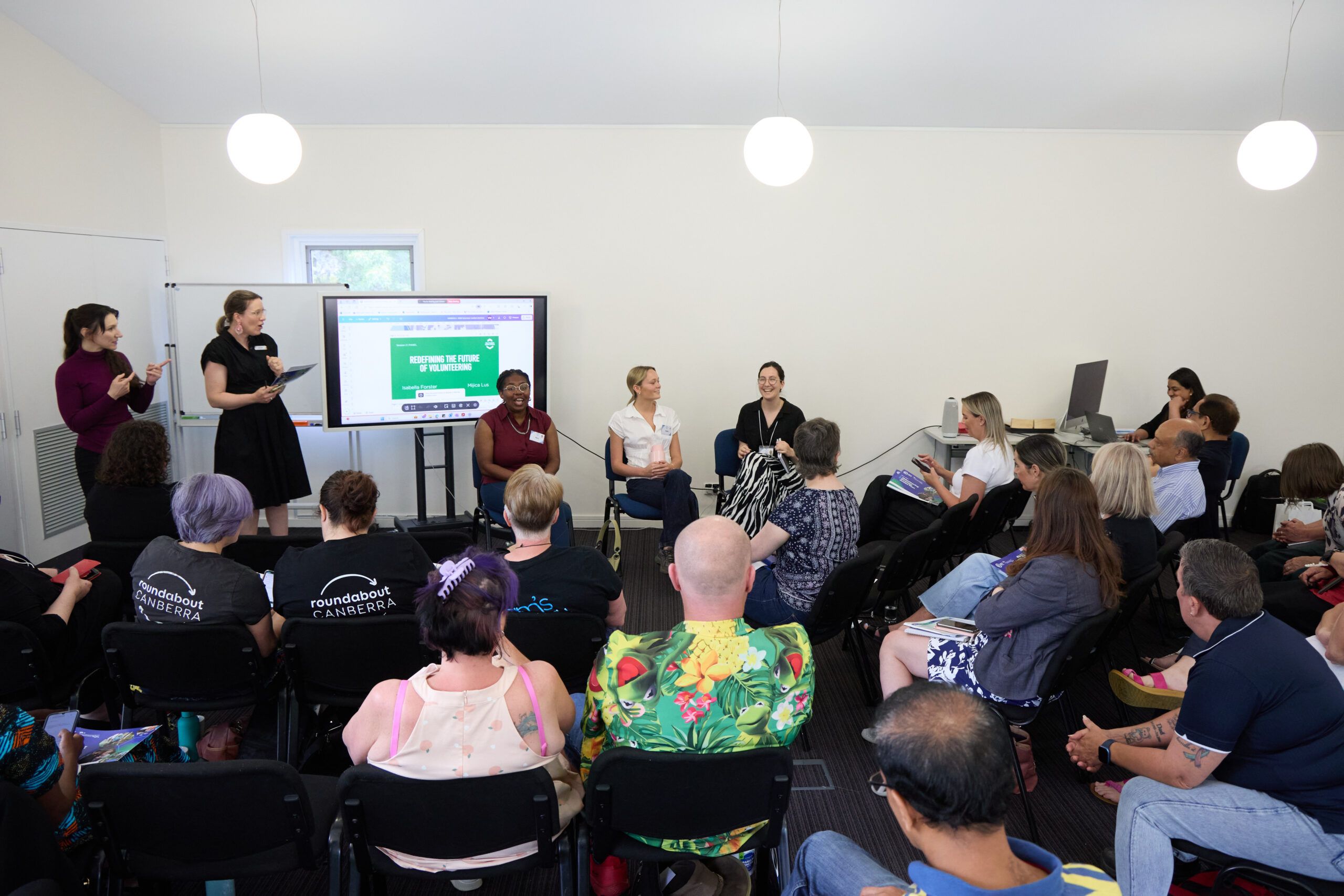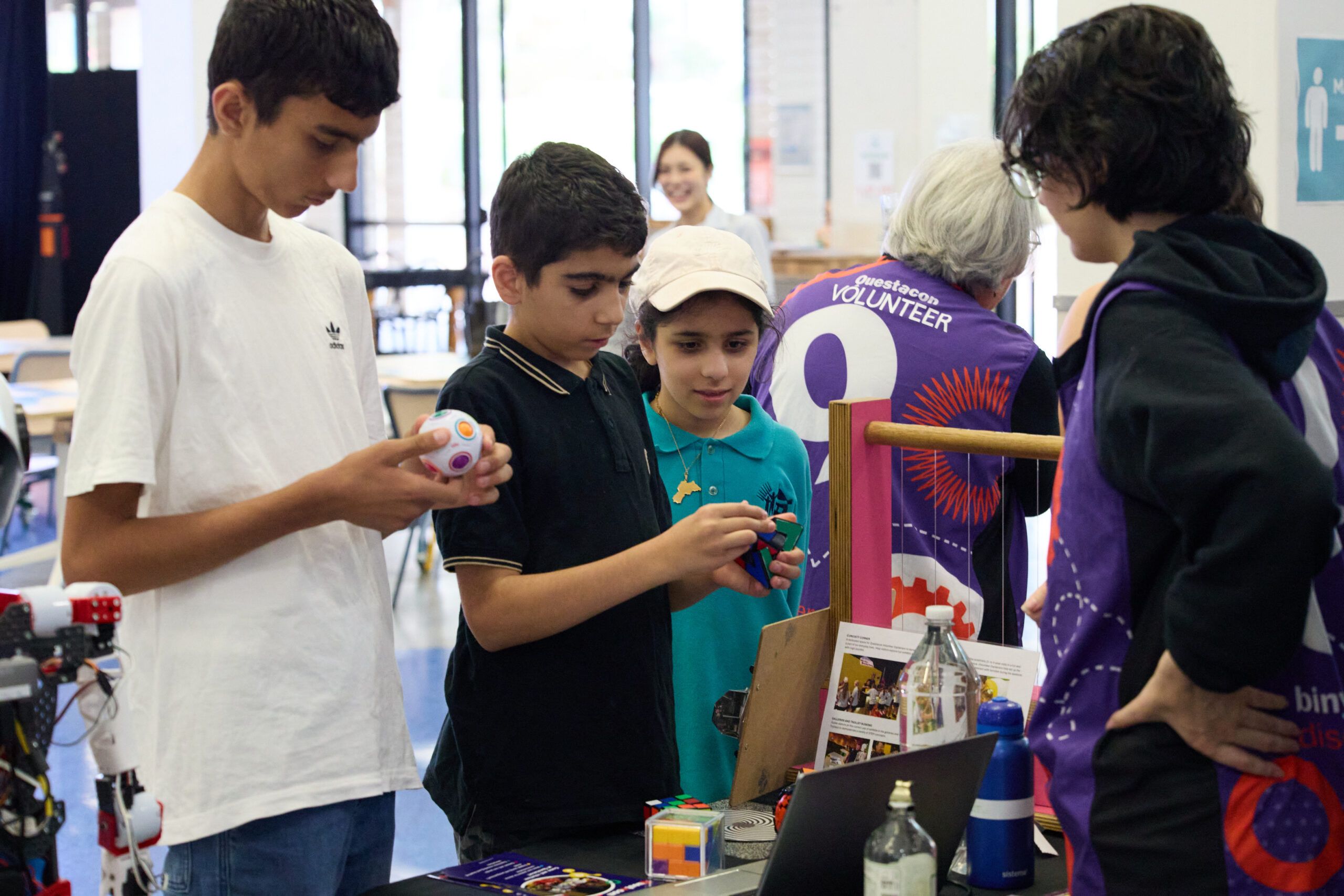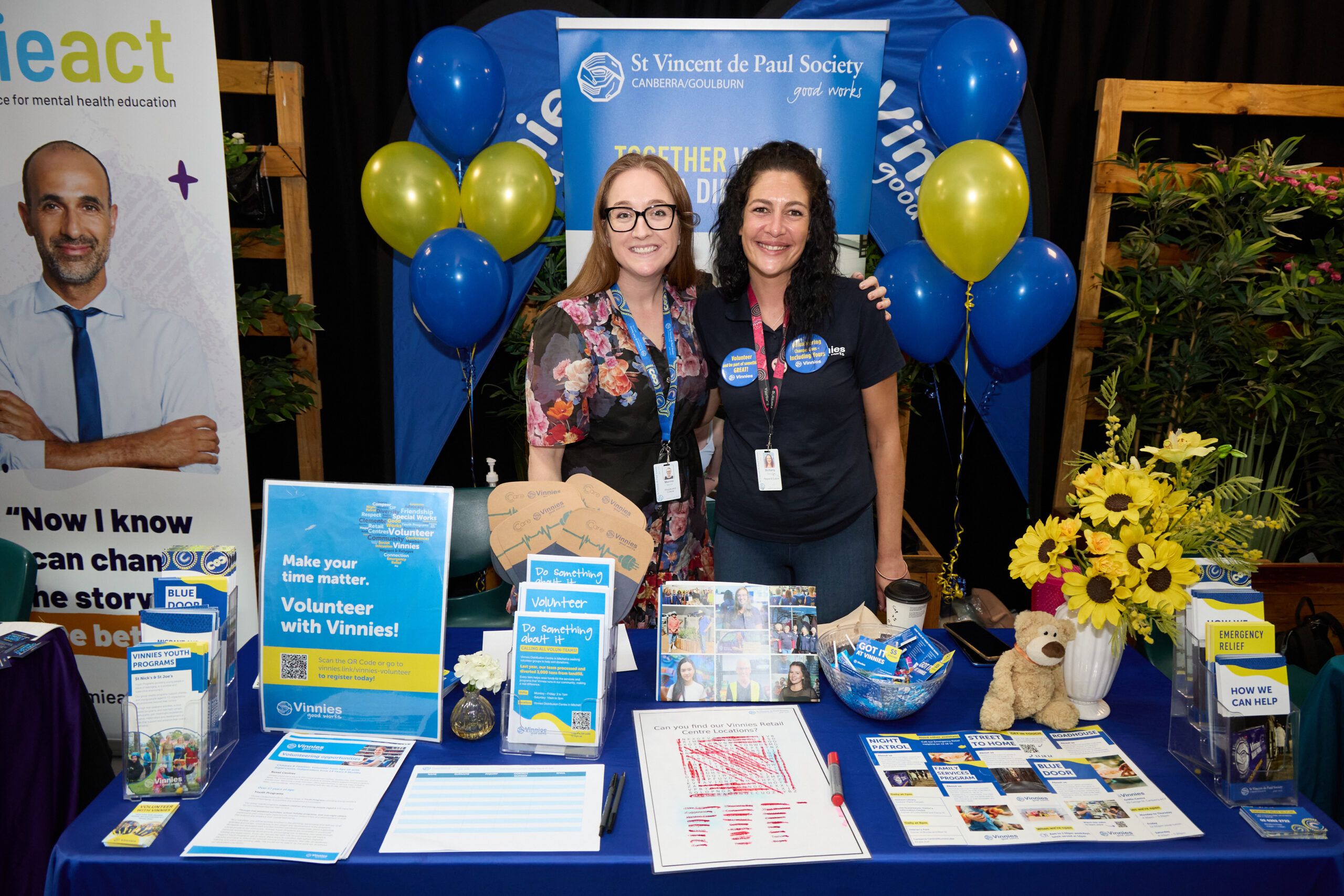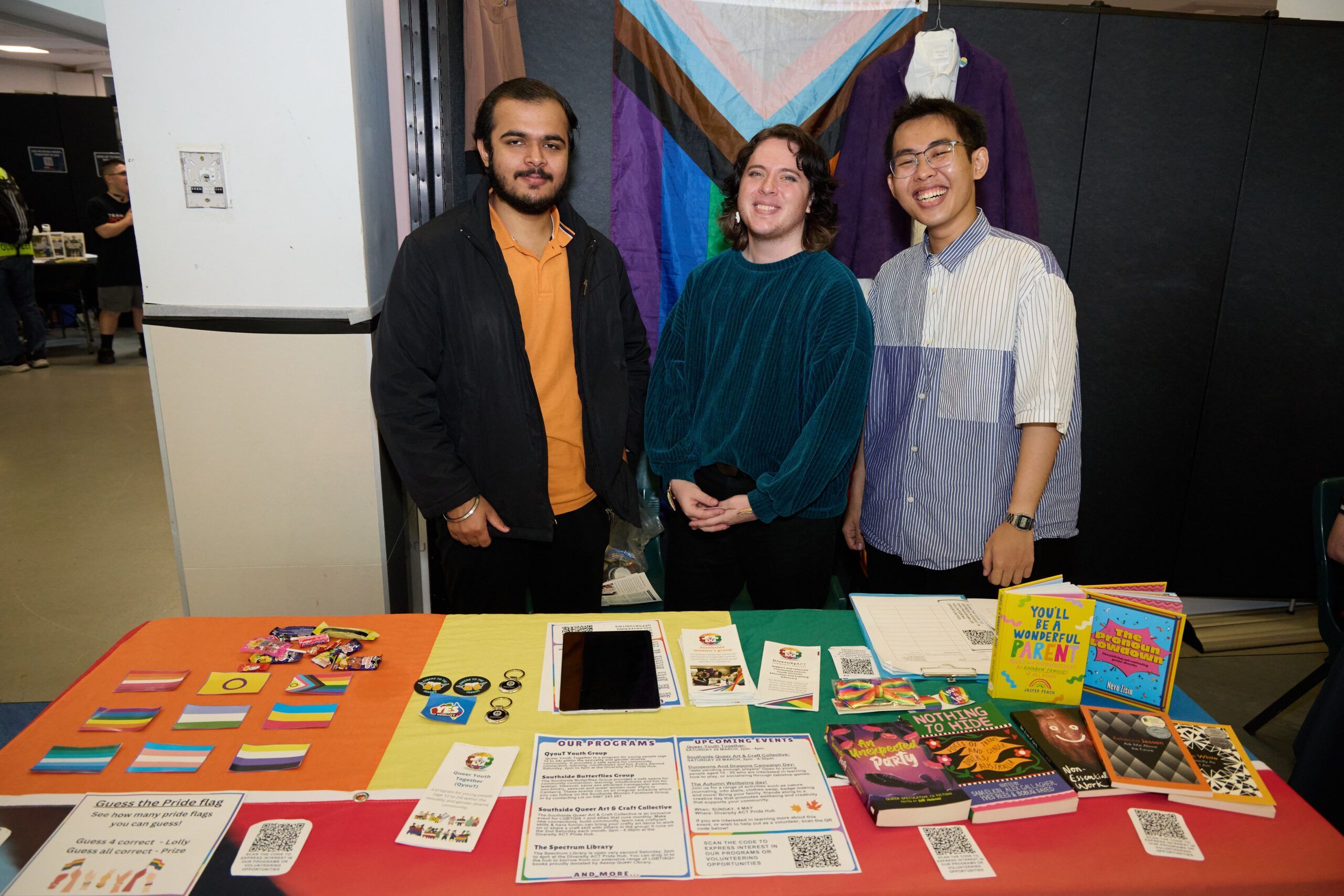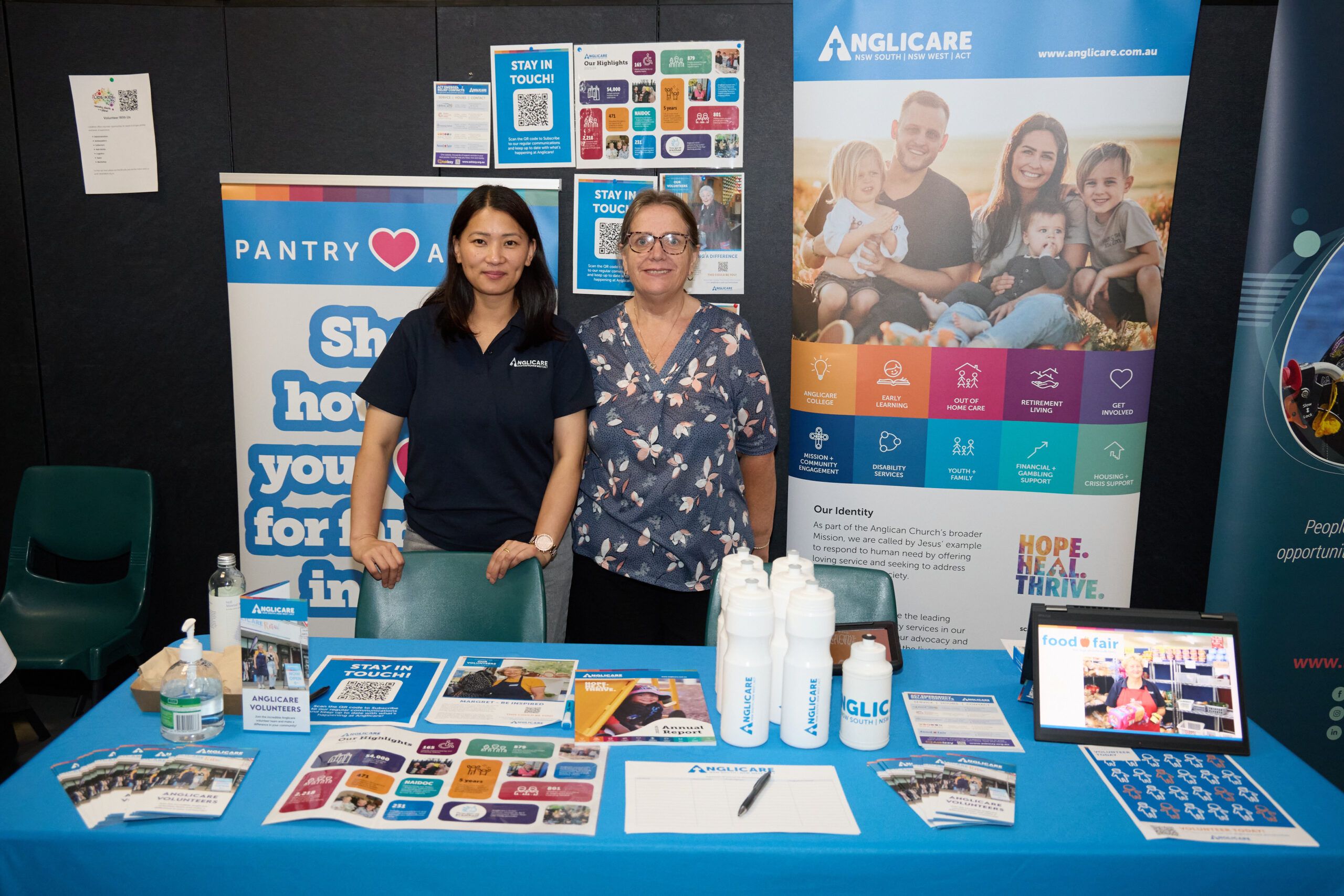
EMPOWERING THE NEXT GENERATION OF VOLUNTEERS!
Young people are the next generation of volunteers. Volunteering empowers young people to build skills, grow their confidence, and connect with their community. But starting the journey can be challenging. Engaging people safely and positively at a young age will support their development into a strong volunteer workforce for the future.
That’s why we, in partnership with the VolunteeringACT Youth Volunteering Working Group, have co-designed three toolkits to inspire, support and manage youth volunteering.
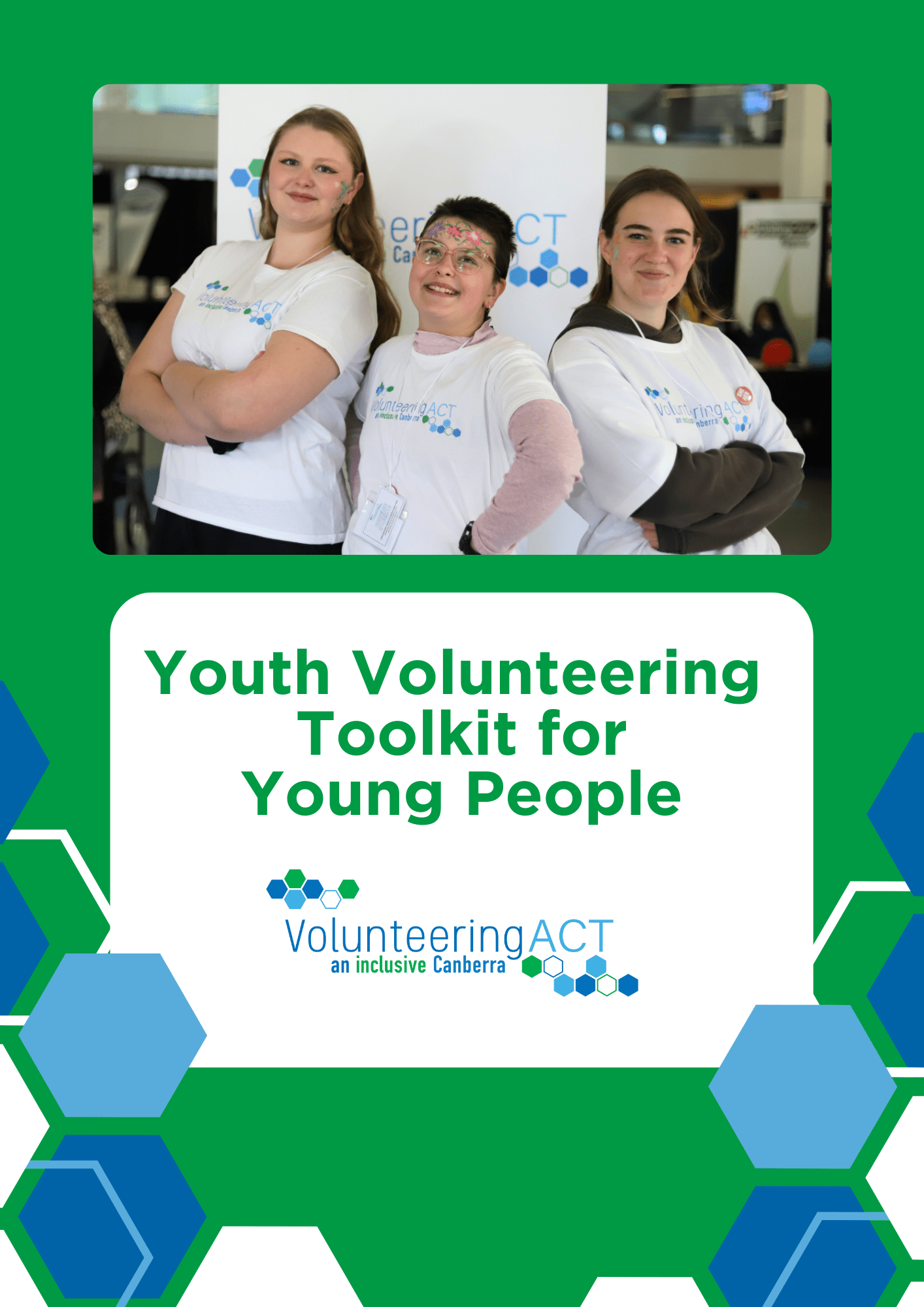
YOUTH VOLUNTEERING TOOLKIT FOR YOUNG PEOPLE
This toolkit is for any young person who is interested in volunteering. It can also be useful for young people who are already engaged in volunteering.
This toolkit is to help you to understand everything you need to know about volunteering including:
- How volunteering benefits you
- How to get started volunteering
- Finding the right volunteering activity for you
- Getting support
- Staying safe when volunteering
Find your cause and start your journey today!
YOUTH VOLUNTEERING TOOLKIT FOR SUPPORT PEOPLE
We know that young people may face additional barriers to engaging in volunteering, and require additional support, coaching, and guidance. This toolkit is to provide advice, information and resources for any person who supports young people to volunteer. For example, teachers, school administrators, parents, career advisors, support workers, community groups/clubs, experienced volunteers, sporting groups/clubs, university/school groups/clubs, church and faith-based groups.
This toolkit is to help you to understand everything you need to know about supporting a young volunteer including:
- Communicating the value of volunteering
- Finding volunteering opportunities
- Supporting young volunteers
- Overcoming barriers to volunteering
- Safety and wellbeing
Champion our next generation of volunteers!
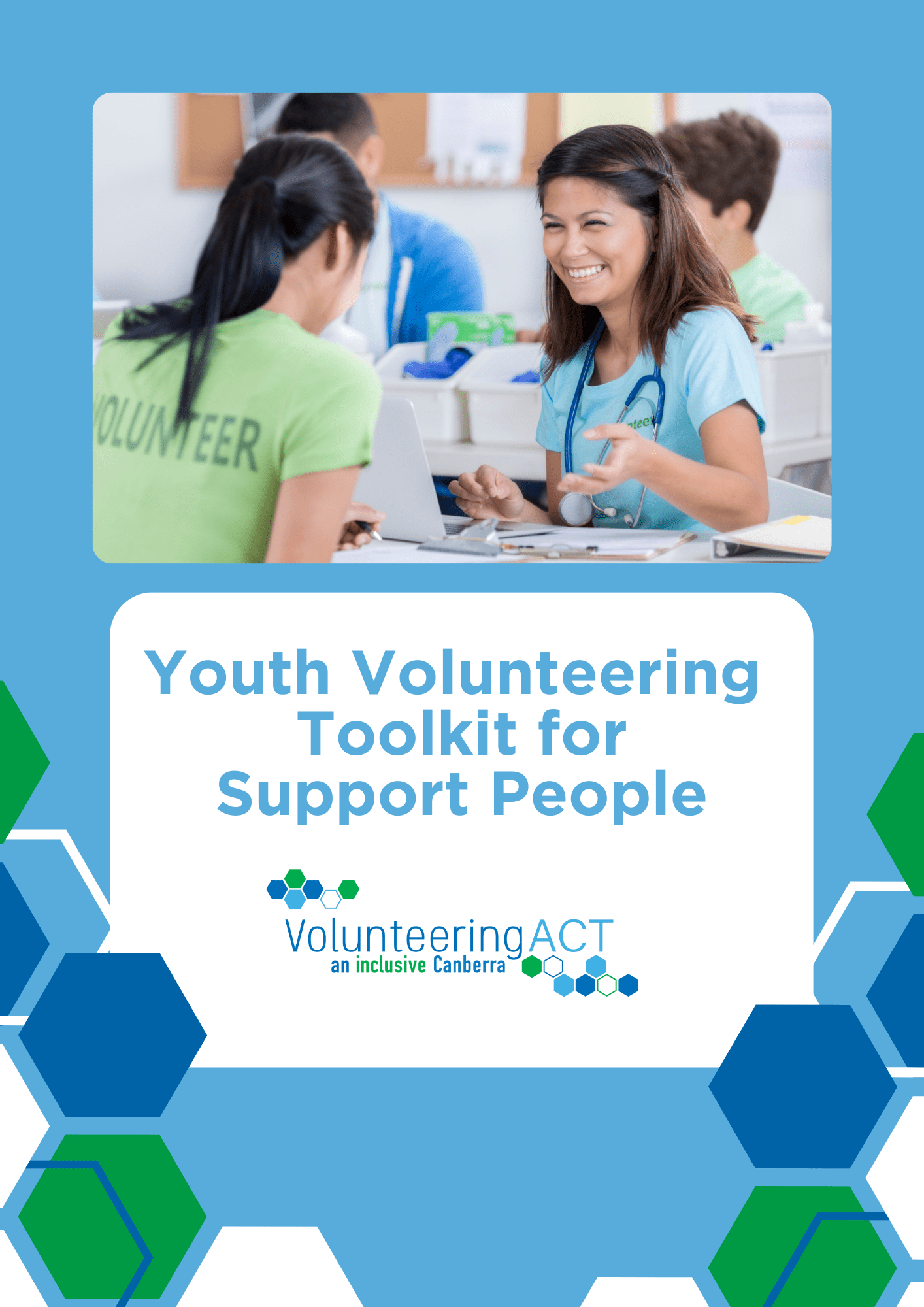
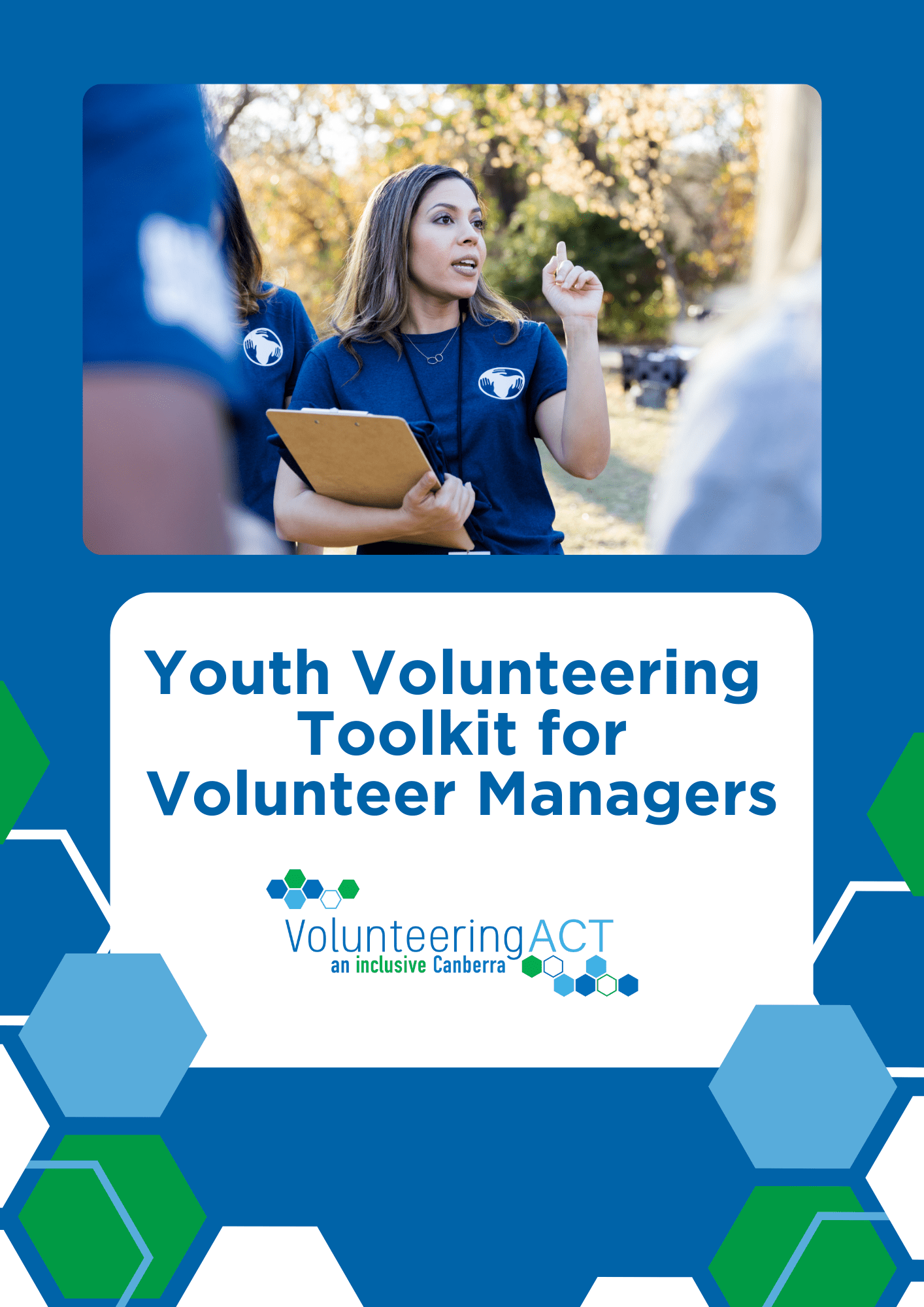
YOUTH VOLUNTEERING TOOLKIT FOR VOLUNTEER MANAGERS
This toolkit is to provide advice, information and resources for volunteer involving organisations and volunteer managers looking to engage young people in volunteering. We know that young people may face additional barriers to engaging in volunteering, and require additional support, coaching, and guidance.
This toolkit is to help you to understand everything you need to know about managing young volunteers including:
- Definition of children and young people
- National Standards for Volunteer Management
- ACT Child Safe Standards
- Inclusive and safe communication and engagement
- Support available through VolunteeringACT
Support and lead our next generation of volunteers!
This toolkit was updated on Monday, 7 July 2025.
BENEFITS OF ENGAGING WITH YOUNG VOLUNTEERS
Young people bring enthusiasm, diverse perspectives and a strong desire to make a difference. When organisations invest in youth volunteering, they build future leaders, strengthen community bonds and align their volunteering programs with the National Standards for Volunteer Management.
Some of the benefits of engaging with young volunteers are:
- Empowering the next generation: A strong volunteering sector is dependent on the active participation of its volunteers. As volunteer managers, you have an exciting opportunity to engage and empower the next generation of volunteers to support continued participation into the future.
- Innovative thinking and new ideas: Young people bring fresh perspectives and new ways of thinking. Involving young volunteers encourages creativity and innovation in any organisation.
- Compliance with National Standards for Volunteer Involvement: Inclusion best practice is outlined in the National Standards for Volunteer Involvement (2024), with Standard 4 focusing on equitable recruitment and the importance of valuing diversity in the volunteer workforce. While you can still be compliant with the National Standards and not engage young people, inclusion is a core pillar of the Standards for you to consider.
- Bring enthusiasm and energy: When taking on a new role, especially in an area that they are passionate about, young people often come with strong motivations, dedication and spirit. This energy that young people bring can boost the morale of the team and increase engagement and productivity in your volunteer programs.
- We need more volunteers: Intentionally engaging young people in volunteer programs will help to boost volunteer numbers and enhance sustainability for organisations into the future.
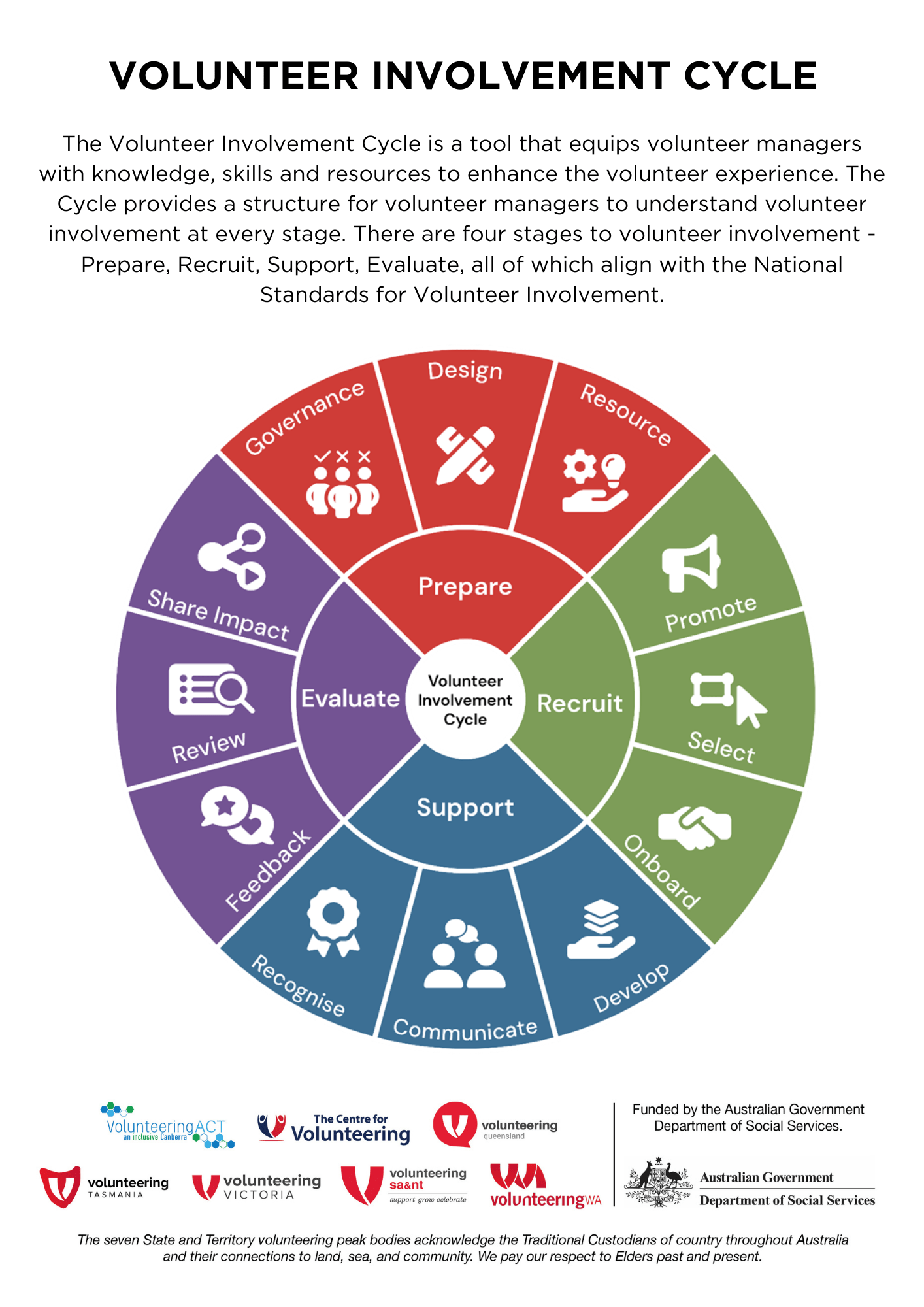
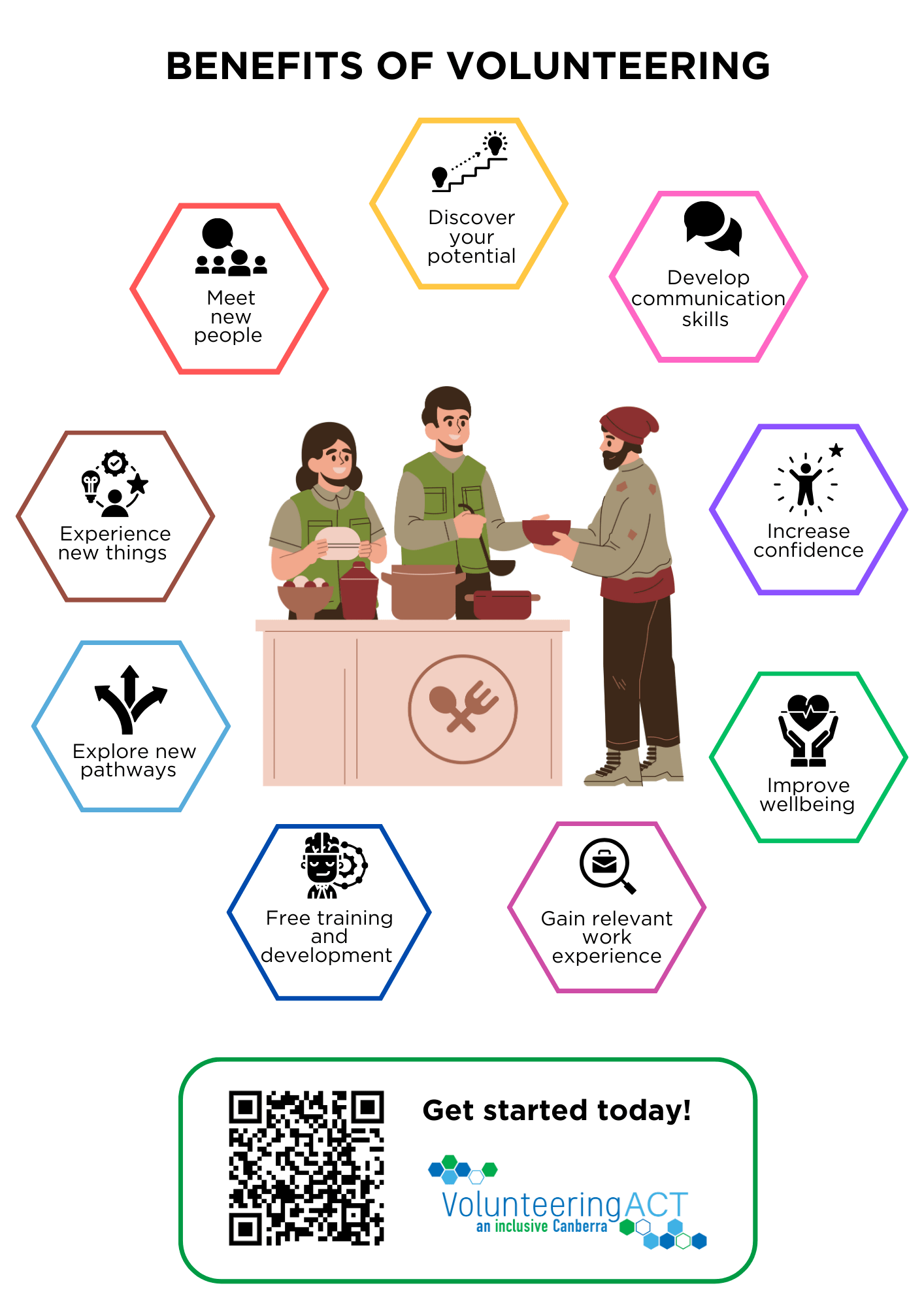
VOLUNTEERING AND AGE RESTRICTIONS
Each state and territory has legislation that sets out specifical legal obligations that apply to the working conditions of children and young people. Many of these apply to youth employment (as opposed to volunteering). However, it is best practice for your organisation to use these legal obligations as a guide for engagement with young volunteers as well as young employees.*
Under the Children and Young People (Employment) Standards 2011, A ‘child’ is a person under the age of 12, and a ‘young person’ is a person between the ages of 12-17.**
Volunteers under 15 years old can undertake light work for up to 10 hours per week, this should be suitable for the physical, emotional and developmental competency of the child or young person.
It’s important to note, as well as weekly hour limits, some age groups also have daily hour limits.
- Ages 0-3, maximum of 3 hours per day.
- Ages 4-12, maximum of 4 hours per day.
- Ages 12-15, maximum of 6 hours per day.
A child or young person may not volunteer for more than one shift per day, with a 12 hour gap between shifts.
Volunteers aged 15-17 do not have any weekly or daily limits on hours, but volunteering cannot disrupt school arrangements.
Volunteers of any age should not be contributing more than 16 hours per week at any one organisation, and must be provided with adequate breaks.*
Maximum volunteering hours per age group
*Engaging and Working with Youth Volunteers Guide, Justice Connect, 2024.
**The Children and Young People (Employment) Standards 2011.
TESTIMONIES
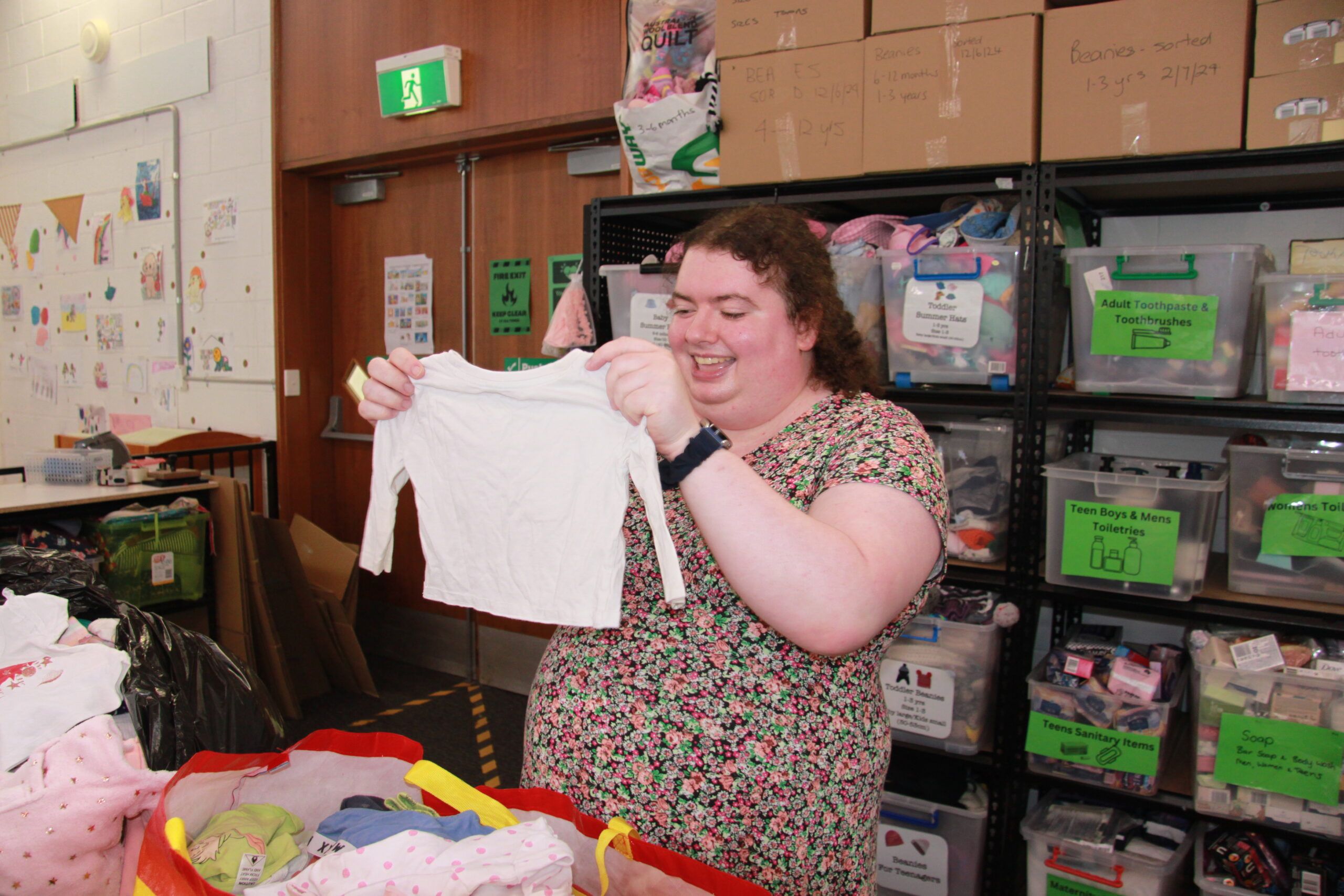
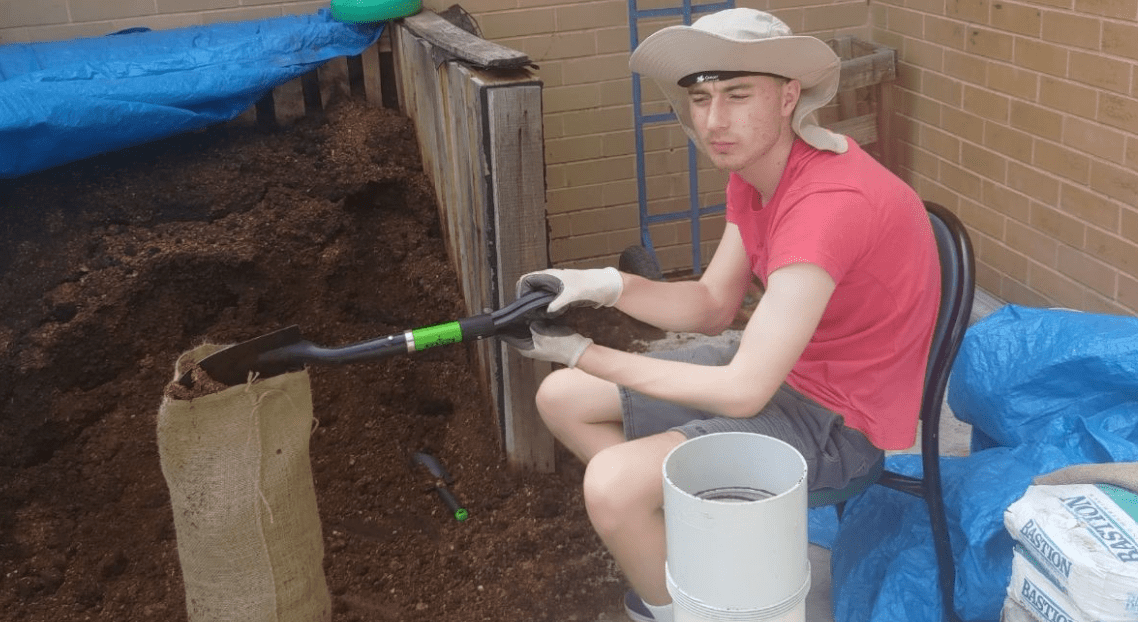
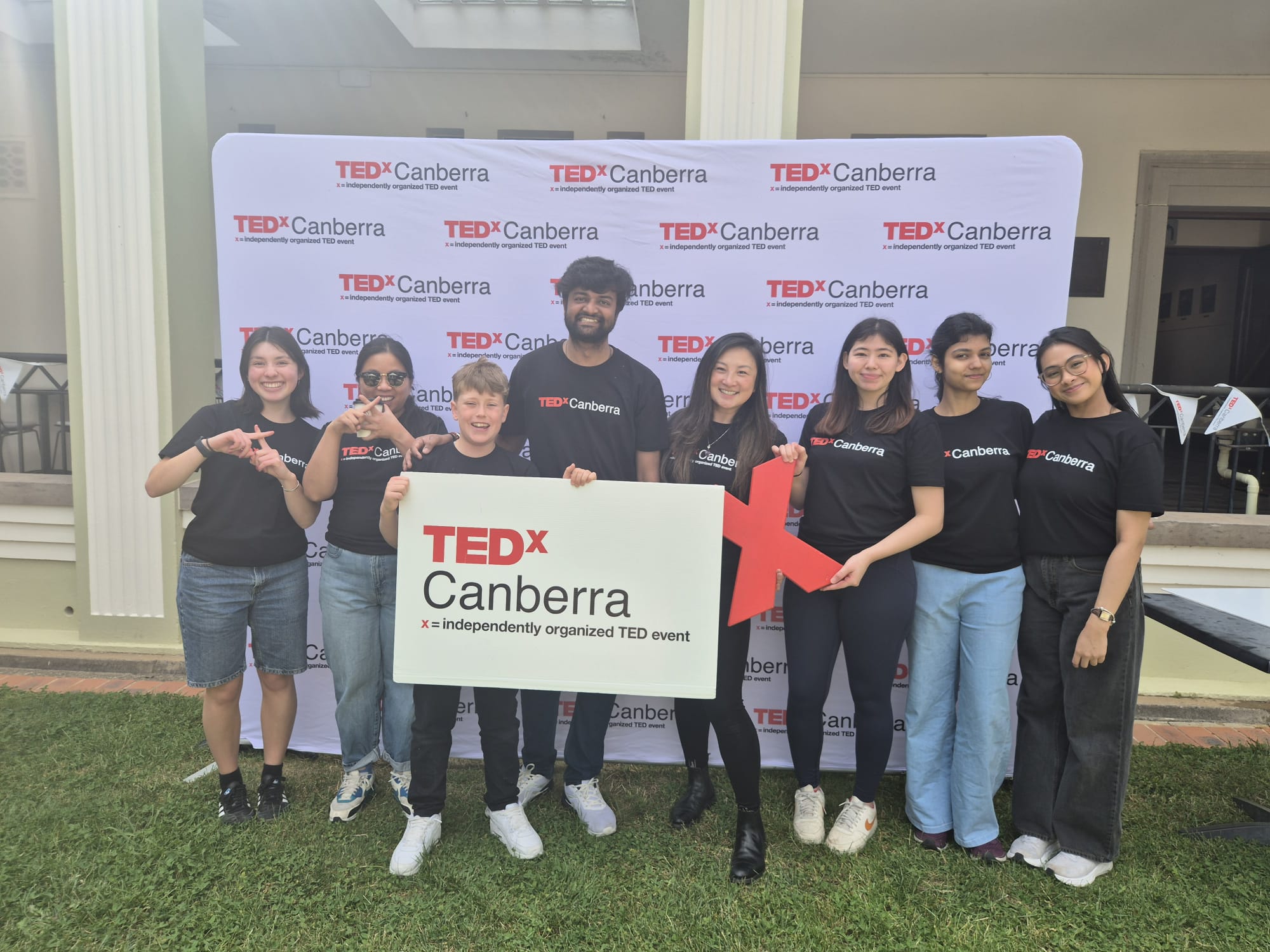
“So much essential work in the community is volunteer based, work which might not get done if there was a profit motive in place. Volunteering has great benefits for both volunteer-based organisations and the people they support but also provides a sense of community and wellbeing for volunteers themselves.”
- Ellie, young volunteer
“I can’t thank enough the IVPTEP (Inclusive Volunteering Pathway to Employment Program) team for the efforts they have put in so far. There is such a big gap for people finishing off school and then moving into the big wide world. Their volunteering roles are fulfilling and add value to their lives. They are gaining valuable experience, feeling good about themselves for contributing and are seen by others in the community as contributing in a valuable way. Having ‘valued roles’ is enormously important to a person with disability. The more valued roles a person has, the more value people place upon a person. We have had some challenges finding further study and structured work experience, but volunteering has proved very successful.”
- Parent of two participants of the Inclusive Volunteering Pathway to Employment Program
We are committed to empowering young people and their voices, and the best way to do this is to give young people the resources and the platform to create the change they want to see.
We simply wouldn’t be able to stage this event without young volunteers. They challenge us to stay nimble and contemporary.
- Olivia, TEDxCanberra Licensee
